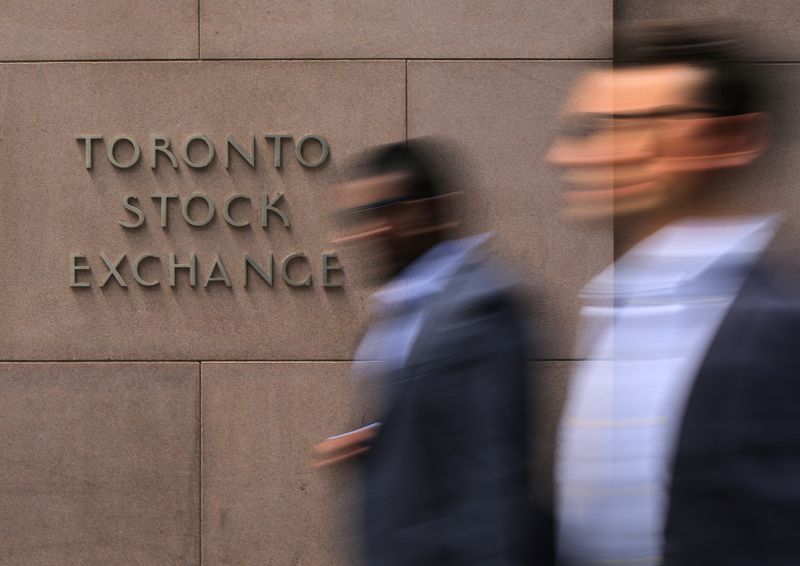Diamyd Medical’s phase 3 diabetes trial passes final safety review
Investing.com - Canada's main stock exchange fell lower on Thursday, as enthusiasm around U.S. President Donald Trump's decision to pause most of his punishing "reciprocal" tariffs showed signs of wavering.
By the 4:00 ET close, the S&P/TSX 60 index had fallen by 43.5 points, or 3%.
Toronto Stock Exchange's S&P/TSX composite index dropped 712 points or 3%, having surged by 1,220.13 points, or 5.4%, in the prior session, notching its biggest advance since just after the onset of the COVID-19 pandemic in March 2020.
The spike mirrored a similar rally on Wall Street, with investors breathing somewhat of a sigh of relief after Trump said he would delay his elevated levies on most countries for 90 days.
A rebound in oil prices from a four-year low after the announcement buoyed Canadian energy shares in particular. Canadian Prime Minister Mark Carney also said that, if his Liberal Party wins an upcoming election on April 28, he would push to develop clean energy and lowest-carbon conventional energy.
Carney and election rival Pierre Poilievre were on the campaign trail Thursday, with the current Prime Minister outlining his crime plan and the Conservative Party leader proposing tax cuts to expedite homebuilding.
U.S. stocks retreat
U.S. stock indexes fell solidly on Thursday, reversing earlier gains as investors fretted about the escalation in the Sino-U.S. trade war, even after Trump's temporary halt on most reciprocal tariffs.
At the 4:00 ET closing time, the Dow Jones Industrial Average dropped 1,015 points, or 2.5% and the S&P 500 fell 189 points, or 3.5%. The NASDAQ Composite declined the most of the three, losing 738 points, or 4.3% on the day.
The main Wall Street indices posted their largest daily percentage gains in more than a decade on Wednesday after Trump's tariff reprieve.
However, the pause did not extend to China. Instead, Trump hiked tariffs on Chinese imports to 125% from 104%, raising trade tensions between the world’s two largest economies.
China had lifted tariffs on U.S. imports to 84%, from 34% on Wednesday, in retaliation to Trump’s first increase of U.S. tariffs. These duties came into effect earlier on Thursday.
China’s commerce ministry said that China is open to dialogue with the U.S. but this must be on the basis of mutual respect and equality.
Crude retreats on Chinese concerns
Oil prices fell on concerns over the escalating trade war between the U.S. and China.
At 6:30 ET, Brent futures dropped 3.2% to $63.40 a barrel. U.S. West Texas Intermediate crude futures were falling 0.2% to $60.17 a barrel.
The benchmark crude contracts had settled 4% higher on Wednesday, following the announcement of the tariff pause, after sliding as much as 7% during the session.
But the higher U.S. tariffs on China still leave plenty of uncertainty in the markets. Any impact to global growth from the levies left in place on China -- the world’s largest crude importer -- could weigh on demand for oil.
Gold jumps
Gold prices extended sharp gains on Thursday, hitting another record high, as safe-haven demand remained firm amid growing trade tensions.
As of 6:30 ET, spot gold jumped 3.2% to $3,182.95 per ounce, hitting a record of $3,188.76 earlier in the session. Gold Futures expiring in June were rising 0.2% to $3,199.11 an ounce after hitting a record high of $3,207.95/oz.
Hefty losses in other financial markets had previously led investors to sell gold to cover losses elsewhere, fueling some recent declines.
(Scott Kanowsky also contributed to this article)
